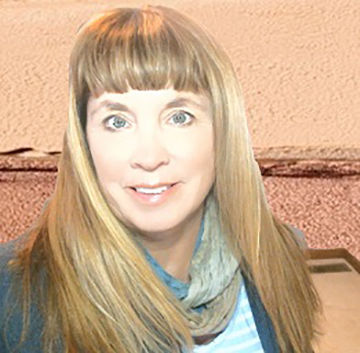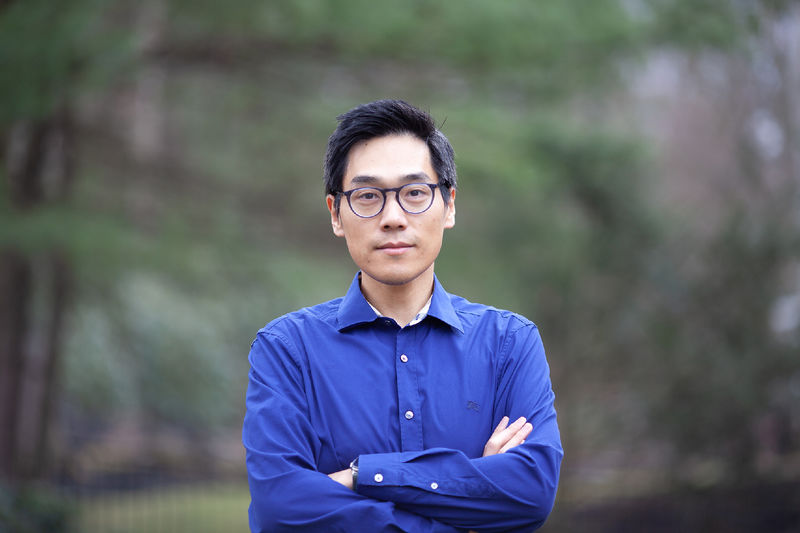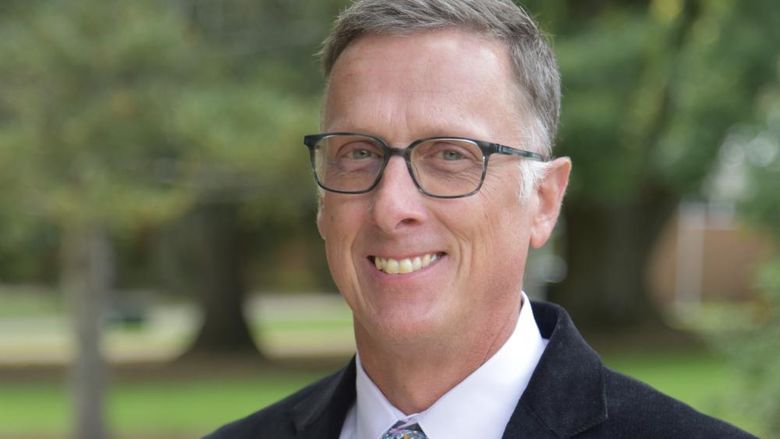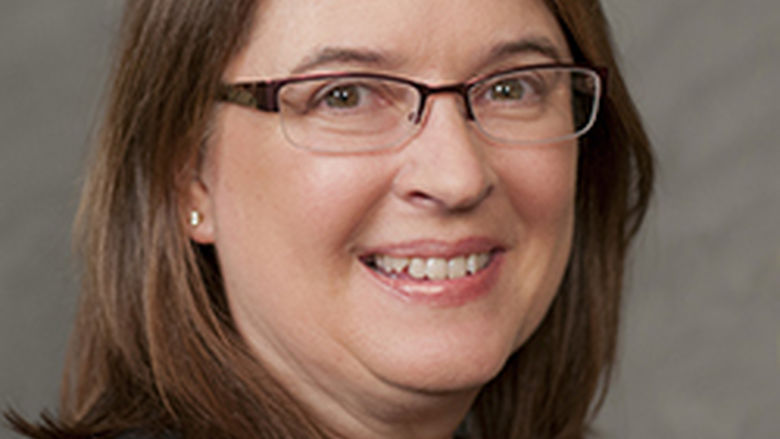UNIVERSITY PARK, Pa. — Pamela Black, professor of criminal justice at Penn State Hazleton; Bonnie Cutsforth-Huber, professor of music at Penn State Altoona; and Nan Zhu, associate professor of risk management at the Smeal College of Business, have received the Alumni/Student Award for Excellence in Teaching and have been named 2023 Penn State Teaching Fellows.
The Penn State Alumni Association, in conjunction with undergraduate and graduate governing bodies, established the award in 1988. It honors distinguished teaching and provides encouragement and incentive for excellence in teaching. Recipients are expected to share their talents and expertise with others throughout the University system during the year following the award presentation.
Pamela Black
Black sets the scene of a day in the life in her classroom. She’s teaching STAT 200 surrounded by about a half-a-dozen women returning to college after starting families. One student is a veteran, another an immigrant; a mother of eight is attending just a few years after her son took the same course.
These three women had the same thing in common, Black said: They were determined to finish college, they always attended and finished assignments, and they were all struggling financially while juggling school, children and jobs.
“These are my students,” Black said. “And I’ve spent 21 years at Penn State teaching to them, and for them, and for my students who work two or three jobs to survive, and for my students who start their own hair salons while still managing, somehow, to stay in school.”
Black finds inspiration for teaching from unlikely sources, even from a gourmet chef rat in the Disney film “Ratatouille.” The tagline for the film, “Anyone can cook,” is how she approaches teaching, she said.
“The phrase doesn’t literally mean anyone can cook, it means great cooks can come from anywhere,” Black said. “Similarly, it’s not that anyone can be a great student. But great students can come from anywhere.”
Black is driven by the successes of her students. She takes pride in the fact that they go on to have great careers in criminal justice. A few, she said, have pursued teaching careers.
Black takes a different approach in the classroom. All exams are open book, open note, and students can take exams as often as they wish. The reasoning, she said, is that exams shouldn’t be used to weed out the weaker students; instead, they should be a form of self-assessment. Students should be encouraged to try and try again until they’ve mastered the material.
“How I innovate is not through the use of new technology or new rubrics,” Black said. “It’s about encouraging my students to get their hands dirty, to feel the theories, to have statistical tables speak to them and spark further inquiry.”
One of Black’s former students said she instantly felt understood and supported in her decision to return to college to finish her degree in criminal justice.
“She immediately related to me and shared her own journey of being an adult learner and a mother as she earned her doctorate,” the former student said. “Over the past two years, we have collaborated on plans to pave my future and create a journey that suits and fulfills me as a person. I trust her completely; I am confident in her ability to advise me in my quest to get the most out of my education.”
Colleagues praised Black’s ability to connect with her students, being understanding while demanding excellence.
“Dr. Black has a unique talent for meeting students where they are and leading them to where they need to be,” a colleague said. “She doesn’t water down the material or lessen the course objectives, but instead helps these students reach these goals through hands-on activities and engaging life examples.”
Bonnie Cutsforth-Huber
Cutsforth-Huber tells her students that singers are athletes, often to their surprise. It’s true, she said: Learning to sing — whether or not you plan to make a career of it — relies on discovering this strength and ability found in oneself. Being in control of your voice, she says, allows you to use it creatively. Just like an athlete, you need to find your strengths and weaknesses that accompany this instrument, where no two are alike.
“Because of this, I never take a ‘one-size-fits-all’ approach to teaching,” Cutsforth-Huber said. “Instead, I identify what each student needs for their instrument to become more coordinated and agile, and then I develop a series of skills, exercises and repertoire that target the areas where the instrument needs refinement.”
She said she relies on her ears, posture, verbal and aural clues from the student to identify the weaker vocal muscles before plotting to improve them. This relationship in an area as sensitive as a student’s art, she said, requires a relationship where the student can speak freely about their talents yet feels comfortable with criticism of their craft.
“I believe this is one of the most crucial components of great teaching,” Cutsforth-Huber said. “The student must be involved in the process. I don’t just want my students to do what I instructed them to do; I want them to know why they are doing it. I am a firm believer that if students ‘know their why’ they can remember my instructions and are able to pass along their knowledge to others more effectively.”
Cutsforth-Huber says teachers must be in tune with the mindset and personality of each student. An approach that works well with one could stifle another, she said.
“Trusting a teacher with their voice often makes students feel incredibly vulnerable because the voice is a part of their body. Any criticism of their voice, constructive or otherwise, can be taken personally," she explained. "I make it my mission to establish a relationship with my voice students where they feel safe to make mistakes and realize that my constructive criticism is to help them improve their skills crucial to learning.”
Colleagues praised Cutsforth-Huber’s dedication to her students, particularly her frequent travel to vocal competitions. They said she’s an effective communicator and educator.
“Cutsforth-Huber is a dedicated teacher who works tirelessly to, for, and with her students to help them realize the potential that she sees in them,” a nominator said. “She’s an inspiration for all her students and many of her colleagues who see her in action. She’s a gifted educator.”
Cutsforth-Huber’s students said her patience, professionalism and extensive expertise in her field made it easy to learn from her. She doesn’t just teach the “what,” she teaches the “how” and “why.”
“She’s done more for me in the past six years than some have done in my entire life, and I owe all of my successes as a singer to her,” a former student said. “She’s used several of her industry connections and resources to help me establish my career as a professional musician and she’s been there to support me every step of the way. She’s an excellent mentor and I don’t know where I would be without her.”
Nan Zhu
Zhu says his teaching philosophy is simple: If you treat students as distinct individuals and get to know them, they’re far more likely to build a relationship with you and reach out when they’re struggling.
“Each year, I teach between 70 and 100 undergraduate students and the first thing I do is get to know each of them on an individual basis,” Zhu said. “Doing so not only enables me to be mindful of their different background and keep track of their progress but, more importantly, makes each student feel seen, heard and appreciated.”
Zhu is always looking for efficient ways of teaching. He knows his students are expected to pass difficult actuarial exams before entering the field, so he wants to make sure they’re prepared. That means a typical class moves swiftly through the required material while students are given take-home materials for deeper dives into complex material that may be useful for their careers.
Even though Zhu's classes are math-based, he sees opportunities for incorporating lessons in diversity, equity and inclusion. One example comes up in his course project on pricing and selling life insurance. Although the concept of life insurance is common to many, those of the Muslim faith view it with two concerns: the payout can be seen as a form of gambling and the interest charged by the insurer can be seen as immoral. Zhu teaches his students to acknowledge how these practices are seen among diverse groups of people. His students learn that a “risk-sharing” model (“Takaful” in Islamic society) is more widely accepted vs. a “risk-transfer” model and can adjust to be more accepting and inclusive in their field.
“I clearly note this at the first page of my project assignment so that not only a Muslim student knows what needs to be done but, equally importantly, a non-Muslim student learns that diversity and inclusion matter and materialize within the insurance business,” Zhu said.
One thing Zhu loves about teaching is watching students learn and grow. It’s rewarding and a chance to grow, too, he said.
“Teaching can be a simple task yet it can be a delicate art and a challenging craft,” Zhu said. “We pour knowledge into our students to see them learn and grow, and at the same time, they give us a chance to check and reshape ourselves. I am humbled for the opportunity to educate the undergraduate actuarial science students at Penn State, and I vow to keep polishing and perfecting my craft.”
Students praised Zhu’s teaching style and his ability to meet them halfway when the course material is difficult. They said he’s honest up front about the work involved, but he’s willing to lead them if they’re willing to put in the work.
“Zhu is an amazing professor,” a former student said. “He made me realize my full potential as a student and forced me to work harder in all aspects of my life. He has a unique passion for teaching actuarial sciences to his students.”
Colleagues also praised Zhu’s ability to ready students for their careers.
“Perhaps the greatest testament to professor Zhu’s teaching quality is that Penn State has regularly led the nation in students who have passed the actuarial exams and he is one of three faculty members teaching these difficult courses,” a colleague said.





